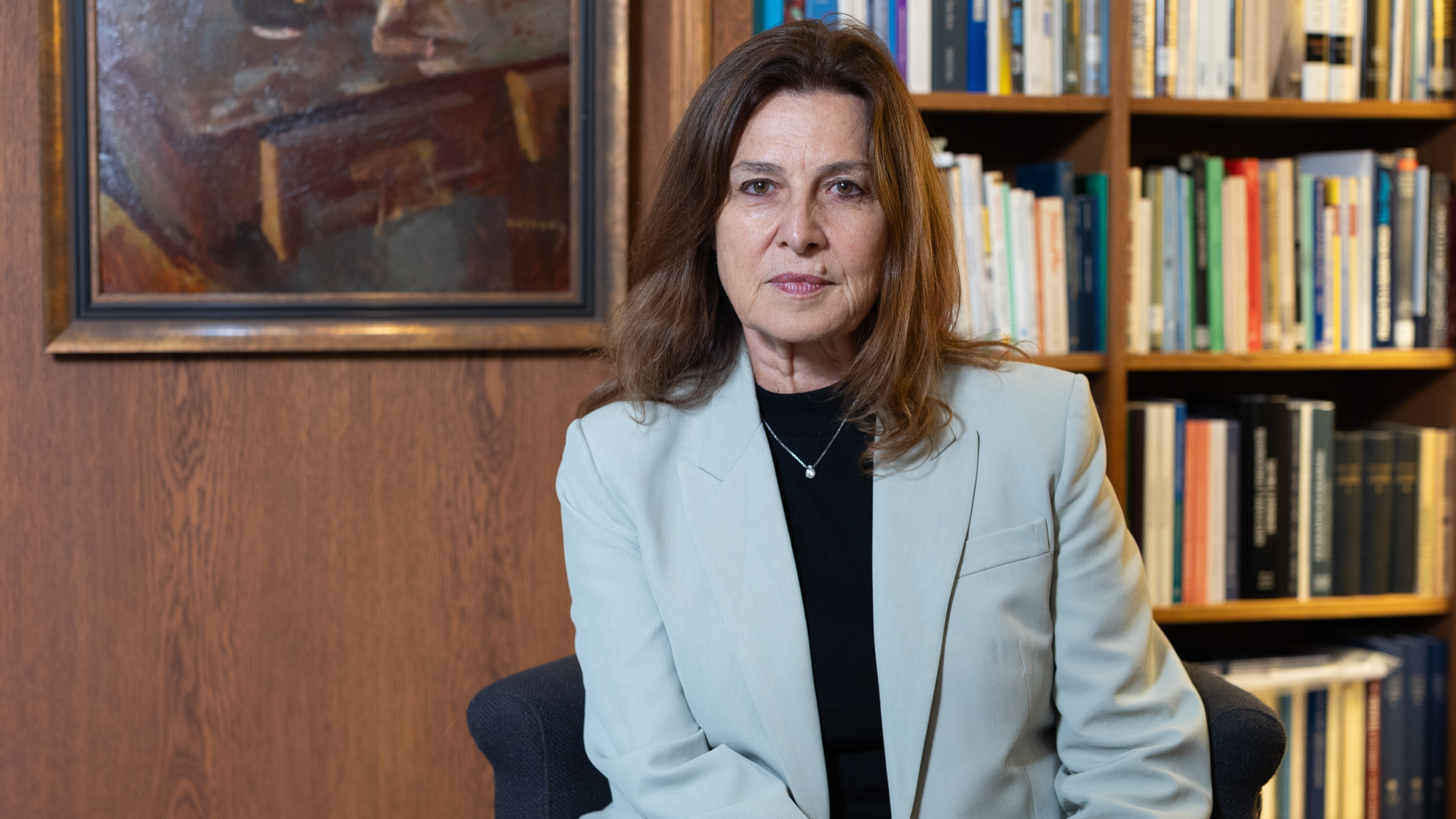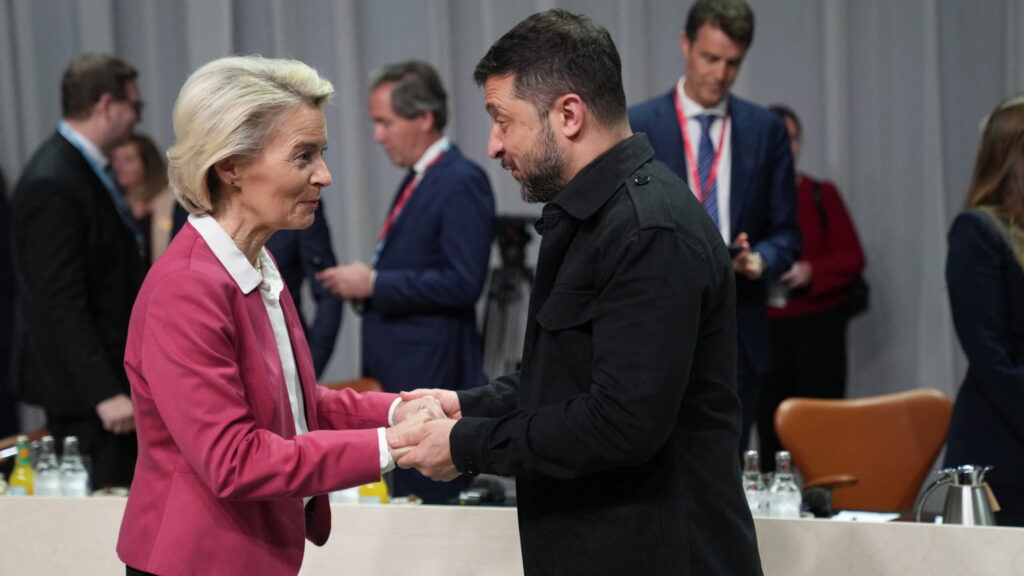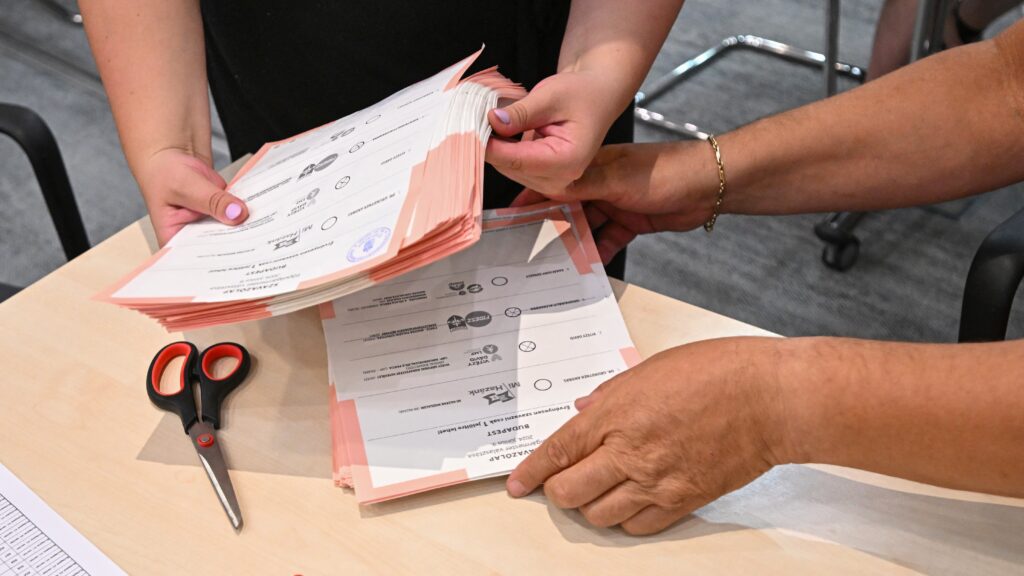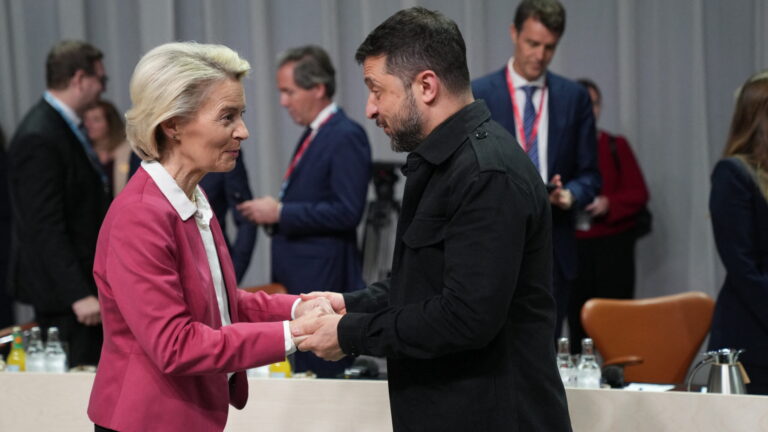Aliza Bin-Noun is an Israeli diplomat. She graduated from the Hebrew University of Jerusalem, where she studied international relations and French. From 2001 to 2006, she was an advisor in the Arms Control Division and then in Political Affairs, holding the post of Director of Department at the Coordination Bureau. She later became Head of the Bureau of International Affairs at the Centre for Political Research before being appointed Ambassador of Israel to Hungary, where she served from 2007 to 2011. In 2012 she was appointed as the Head of the Political Bureau in the Ministry of Foreign Affairs, and from 2015, she served as the Israeli Ambassador to France and Monaco. Bin-Noun has been the Political Director of the Ministry of Foreign Affairs until this summer. She recently visited Budapest as a Distinguished Fellow of the Ludovika Public Diplomacy Hub programme.
***
While the US tries to secure a deal between Israel and Hamas, Israel attacked Hamas targets in an allied state, Qatar. It seems illogical and counterproductive. What is your explanation?
I need to start with 7 October. I think the world has forgotten what happened on that day. This was the biggest attack on Israelis since the Second World War. 1200 people were brutally massacred in ways that are really horrible, and it was a shock. So, since Israel got engaged in the war in Gaza, the aim of the government is to eliminate Hamas’s military and civil capabilities. Hamas cannot exist anymore in Gaza, because they carried out these atrocities.
The other aim is to bring back the hostages. During the last two years, a few prominent Arab leaders were eliminated: Hassan Nasrallah in Lebanon, Yahya Sinwar in Gaza and many others. No Hamas leader, no Hamas activist can feel safe, no matter where he is. Prime Minister Benjamin Netanyahu, the Israeli government and the Israeli population fully back this concept that Hamas leaders who were involved in carrying out the Israeli massacre don’t have the right to exist. So the attack in Qatar was part of the pursuit of these terrorists. By the way, Qatar is not an ally of Israel.
Yes, it’s an ally of the US.
The biggest American military base in the Middle East is located in Qatar. Qatar also took a very significant role in the negotiations to bring back the hostages. But Qatar is also the country that supported Hamas by all kinds of means and measures, and Qatar is also responsible for what happened on 7 October.
‘Hamas cannot exist anymore in Gaza, because they carried out these atrocities’
So we continue to pursue Hamas terrorists; they will be hunted everywhere. It’s not a question of revenge. It’s a question of weakening, eliminating the capabilities of Hamas.
Part of the Israeli society criticizes the government and its actions. Hostages and Missing Families Forum, an Israeli civil organization, wrote that Netanyahu is ‘one obstacle’ preventing the hostages’ return; they claim he clings to his power, and he handles the matters in the wrong way.
It’s true that a big part of the Israeli society expressed its opposition to this attack exactly because of what you rightly said, that it would harm the efforts to release the hostages. But Qatar, after this incident, said that they’re not going to pull back from the negotiation table. They said they’re going to maintain their role, and they’re going to continue the negotiation. So from that point of view, there was no harm, because they’re still there. It’s important for them to play a role. It’s part of their positioning themselves as a moderate country, and we’ll see what comes next. But yes, I agree with you that there was, and there still is a big worry on the part of many Israelis. The society is divided on supporting the second stage of the Gaza war. I think the priority should be to bring back the hostages.
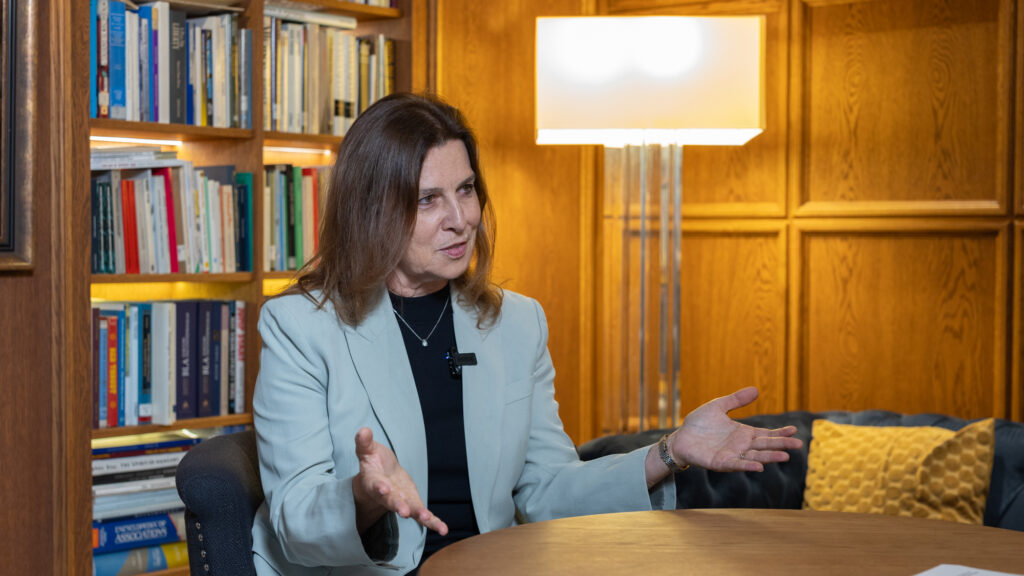
There are two big aims of the war: eliminating Hamas and bringing back the hostages—Netanyahu promised them. Can these two objectives still be done?
I think they can be done, and I think that they’re still very much relevant. Eliminating Hamas, weakening Hamas, making everything so that Hamas cannot be in control of Gaza anymore, is something that’s still very much intact, and that’s why we are now witnessing the second stage of the Gaza war. There is a preparation to scale up the operation in Gaza with regard to the hostages. Bringing them back is very important, and the prime minister and his government are committed to that. There are fears that the hostages will be killed by Hamas as revenge. The army will do all it can to avoid such consequences. But of course, nobody can guarantee anything, because we don’t know how the terrorists that are holding these Israeli hostages will react.
A hypothetical question: if the IDF manages to cleanse the whole Gaza Strip of Hamas militants, and is in control of the whole territory of Gaza, what will you do with the Strip?
Look, there are lots of debates and discussions in Israel about what will happen next, but there is no real government decision that has been put forward about it. What is important for the Israeli government is to ensure the safety of the Israelis who live in that area, in the southern part of Israel. And in order to guarantee it, Gaza has to be a demilitarized entity, and Hamas should not be in any way in control of it. They operate as a guerrilla force because their military structure was destroyed. And I think this will continue because you cannot root out ideology. There will always be those who will join the guerrillas in order to kill Israelis. But we have to make sure that they cannot actually execute this ideology. So, who will rule Gaza? It’s a question. I mean, there are all kinds of plans. There were talks and declarations in the past that Israel doesn’t want to control Gaza. But what is certain is that Israel cannot be put in danger; Israeli lives cannot be risked by any entity in Gaza.

And what will you do with the West Bank? Because settlers push for an official recognition of the sovereignty of Judea and Samaria. If that happens, there will surely be a spark of some uprising on the Palestinian side in the West Bank. What will you do with that area?
It’s a big question. There are lots of debates and ideas regarding Israeli annexation or sovereignty over the Jewish settlements, but there is no official decision yet. It’s important to remember that when these talks accelerated concerning the recognition of a Palestinian state, the Israeli government said there would be consequences. It was also stated that one of those consequences could be the annexation of the West Bank. Nobody went into detail about the extent or specific locations, but the possibility was raised, and European powers were warned that this could happen if there were a unilateral recognition of a Palestinian state.
‘Israel doesn’t want to control Gaza. But what is certain is that…Israeli lives cannot be risked by any entity in Gaza’
In terms of uprising, in terms of protests, I think Israel has experienced that, and the IDF has been doing and will continue to do the maximum to guarantee the safety of the Israeli population. The IDF is operating in the West Bank.
But this could be a different situation, because Gaza is already lost for the Palestinians, and if most of the West Bank is lost too, it would mean that the two-state solution has become an illusion. The Palestinians would feel cornered—and in that situation, you just don’t know what they might do.
First of all, we know what they can do. It’s not as if Israel doesn’t have experience with the Palestinian uprising, with Palestinian measures and actions against Israel. But I’m sure that the IDF will be able to cope with such an uprising, if it were to occur. But we’re not there yet, so we have to wait and see if this is going to happen, what it is going to look like, and then, according to this, we can foresee or try to estimate what the Palestinian reaction will be.
We know that Israel is not shy to do anything to protect its interests and to secure the defence of the country. But could there be a point when the US doesn’t follow you? In the case of Doha, even Donald Trump criticized the Netanyahu government. If the US stops supporting Israel, what will you do?
I believe that the most important thing for Israel—regardless of which government is in power—is to maintain strong strategic relations with the US, because the US is Israel’s greatest ally. Our security and well-being are deeply tied to that relationship.
‘Concerning the recognition of a Palestinian state, the Israeli government said…one of [the] consequences could be the annexation of the West Bank’
So my private opinion is that if we’re going to see a very strong opposition on behalf of the American president to such a measure, I think it will be taken very seriously into consideration by the Israeli prime minister. If you remember, towards the end of the operation in Iran, there was a very clear message to Israel to have their planes returned to Israel, and the last planned attack did not take place because of the US message. So, given the special relations and the interests that Israel has with regard to its security, I am confident that such an American stance would be taken very seriously by Israel.
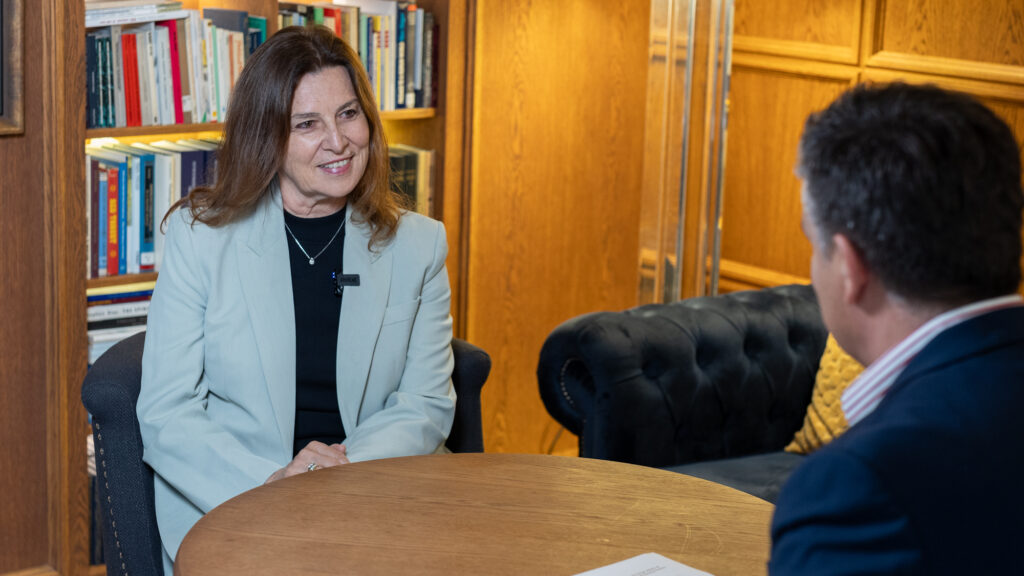
Aren’t you afraid that your country is becoming a pariah state? We see the international institutions condemn Israel’s actions.
As somebody who’s been dealing with Israel’s foreign relations for so many years, I think that we are not in a good situation. We see the resentment, the boycotts, the demonstrations. We see the rise of antisemitism. We see concrete terror attacks that are being carried out against Jewish communities and Israelis abroad.
But I don’t believe that Israel will become a pariah state, because I think there is still a lot that connects Israel to Western civilization and Western values. When Israel attacked Iran, I believe it was actually doing the West’s dirty work—because our values are shared, Western values. I also think Israel is on the front line of a much bigger war that is coming and will affect European and other Western societies. So, at the end of the day, I believe there will be a realization that Israel must be backed—as the only democracy in the Middle East and as a country that truly reflects Western values.
It’s true that, at the moment, our situation is not good. But I think it’s reversible. I believe the changes in the Middle East will continue. And I would argue that having Israel as a fully integrated part of the region is in everyone’s interest—because Israel can contribute a great deal to its neighbours, while also benefiting from closer relationships with them.
‘I don’t believe that Israel will become a pariah state, because I think there is still a lot that connects Israel to Western civilization’
Hungary shares this vision; the Hungarian government really feels that Europe needs to side with Israel because of the common threat from outside. You were the Israeli ambassador to Hungary 15 years ago; you saw the transformation of the relationship between the two countries, how Fidesz and the Orbán government have become pro-Israel forces. What are the elements that contributed to this change?
I was posted in Hungary between 2007 and 2011, so I was following Fidesz when they were in opposition. I had meetings with people from Fidesz, and I never thought that Fidesz was antisemitic, as the stereotype of right-wing parties in Hungary suggested. Over the years, I agree, Hungary’s policy became more and more positive toward Israel. And today, I can say that Hungary is Israel’s biggest friend in Europe.
There are many reasons for this. First of all, there are historic and religious reasons—shared values between our peoples. The Hungarian community in Israel serves as a bridge between Hungary and Israel, and the same is true of the Jewish community here in Hungary. Then comes the economic cooperation. And, of course, the common threats that endanger the security and safety of both countries. We’re actually working in the same direction to ensure the safety and security of our peoples.
So, I think these common interests brought Israel and Hungary closer and closer together. And there is also a strong relationship between the leaders of both countries, between Mr Orbán and Mr Netanyahu. It’s very important to have good personal relations. And at the end of the day, it makes two countries more than just friendly partners; these relations benefit both sides, and I do hope they only get stronger and stronger.
Listen to the full podcast below:
Won’t Israel become a pariah state? | Danube Lectures
Listen to this episode from Danube Institute Podcast on Spotify. What is Israel planning to do after the Western recognition of Palestine? Will there be a point when Washington doesn’t back Israel further?
Read more interviews from the Geopolitical Summit:

